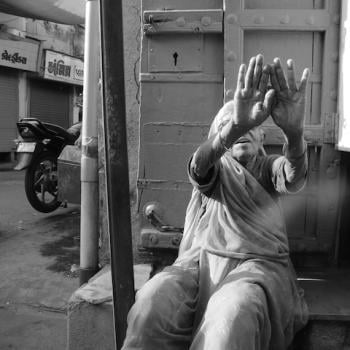
I once heard the late commentator Mark Shields describe democracy as ‘the way we resolve our conflicts without using violence’ (paraphrase). This description is wise. It also renders voting an ethical or moral act. If people of faith are called to be peacemakers, and voting—along with other mechanisms of active democracy—is how we avoid violence with our neighbors, we are called to engage democracy.
A roiling conflict in our country is the waging of culture wars in schools, in part via school boards. And representative of the US national school-boards conflict is the school district where I live and where a handful of children I know and love attend school. Because of the devolution happening in schools, retention of staff and teachers has reached a crisis point across the country. In the district I mention, which represents a smallish town of 23.5 thousand people, 120 staff/faculty are not returning to work in the district this fall. The entire district totals just 290 teachers and 230 staff, give or take. I wish this trend was anomalous, but it’s not.
Culture wars—the wrangling over issues like gender, race, and guns—is not the only reason for staff retention challenges in schools. Other issues are at play, such as covid, budgets, classroom sizes, economics. But where I live, gender and race discussions are key, as the banning of Pride and Black Lives Matter flags in the schools by a far-right leaning board, and all that this policy embodies, has created an environment undesirable for many people. But here’s the thing: students cannot resign. No matter how undesirable the environment, students must keep attending in this district. Despite hostility, despite an increase in bullying, despite staff (including a beloved Superintendent) being replaced by people who tow a right-wing line. For LGBTQ young people and young people of color, the hope of learning in a supportive district dims year by year.
Several factors lead to trauma for young people, including events commonly understood as traumatic, for example, physical abuse. But less commonly recognized factors also contribute to childhood trauma. One involves being surrounded, for long periods of time, by a context of non-acceptance of who you are. We all experience rejection at times as children, and no one is accepted all the time. But typical rejection is different than growing up amidst adults who suggest or state outright that you are essentially flawed. This can damage a young psyche. As school boards implement homophobic and racially discriminatory actions, they harm kids. This harm is happening on a massive scale this year across the country, and we may not know the impact for decades.
In the district where I live, recalls were mounted that would have ended right-wing domination of the school board. But you know what? An abysmally low number of progressives voted. I live in a state with easy, all-mail voting. In my state, in most elections, voting and mailing-in ballots literally takes minutes to complete. Yet such a small number of progressives took time to vote, that the recalls failed by narrow margins.
For those of us concerned about the well-being of district kids we love, this was heartrending. In an abstract way, I worry about all the kids in this district. But in a particular way, I worry about one kid. I worry about their mental health in an atmosphere where rising bullying is a natural outcome of the bullying behavior of certain school board members. I worry when this young person is warned against taking classes from certain teachers who are unsupportive of gender non-conforming kids.
I write this to remind people: Vote for small things. Vote in school board elections. Vote in school board recalls. Vote for placements among county commissioners and city councils and elections boards. These acts of democracy are, in part, how we follow the call to be peacemakers, because voting is how we resolve our conflicts without using violence. Voting is a moral act.
Wren, winner of a 2022 Independent Publishers Award Bronze Medal


















